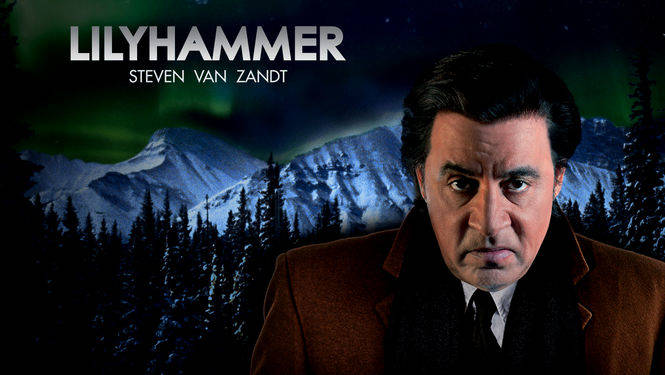A Wise Guy in Paradise
Without fanfare, without a premier episode and without any publicity Netflix recently launched its first “original scripted” series: Lilyhammer. The coverage in the media has mostly been about the production of the show. Netflix has taken a series made for Norwegian television and tailored it for online viewing where the entire series was launched simultaneously rather than being scheduled week-by-week. The series stars Steven Van Zandt, former guitarist for Bruce Springsteen’s E Street Band and most recently seen on American television in The Sopranos as strip club owner Silvio Dante. Van Zandt, an Italian American from Massachusetts (born Steven Lento), is also a writer and producer of the show.
Less has been said about the show’s story line. The premise is that Frank “The Fixer” Tagliano becomes an informant for the FBI and in return is given a new identity as Giovanni Henriksen. Once the gimmick establishes the raison d'être, the series follows “Johnny” as he tries to bring Las Vegas to Lillehammer. This leads to almost every known stereotype of Italian/American culture that you can imagine. Some are just straightforward ethnic slurs such as Johnny resorting to violence in solving his assimilation problems, to classic Godfather-esque parodies. There is a scene, for example, when an eco-philosopher who refuses to sell his farm to make way for a condominium development project finds a dead hen on his bed. Some of the dialogue is witty, some is campy, some is predictable and all of it encapsulates the view that the Italian/American experience is the wise guy experience. In fairness, the show also pokes fun at Norwegian societal foibles. The television version has been a monumental hit garnering a record audience of 998,000 viewers (one fifth of Norway's population) for the first broadcast.
It is this last point that is unsettling because it is a reminder that the view of ethnic America held is the one filtered through movies and television. While we fail to address the deepening identity crisis in Italian/American culture and fret about the influence of shows like Jersey Shore on young people, an international stereotype has emerged and essentially gone unchallenged from the American media that will limit opportunities for a new generation of Italian Americans abroad. This comes in addition to the increasing general dislike of Americans globally. Therefore the lack of response to Netflix in this inaugural attempt at original programming is problematic. With over ten million subscribers, Netflix has not bothered with advertising Lilyhammer because everyone who goes to its site will see the tag image for the show – a grimacing Johnny is his camelhair topcoat with a mock version of Skeikampen Mountain in the background. The reach is vast and immediate. Even if one chooses not to watch the series in its entirety, the point is made at entry in the first minutes of the show.
What is striking is that the lead character’s new identity is forged on the most reprehensible aspects of his original one. The message is that we are bound by the inevitable paths forged by ethnic stereotypes. Rather than finding new ways of being in a new societal framework, the taint of negative ethnicity is so strong that that the character instead brings the toxic waste of ethnicity to the countryside. Once again a deleterious view of Italian Americans is promulgated with no refutation; so it is again ethnic stereotypes all in the name of fun and profit.


































i-Italy
Facebook
Google+
This work may not be reproduced, in whole or in part, without prior written permission.
Questo lavoro non può essere riprodotto, in tutto o in parte, senza permesso scritto.